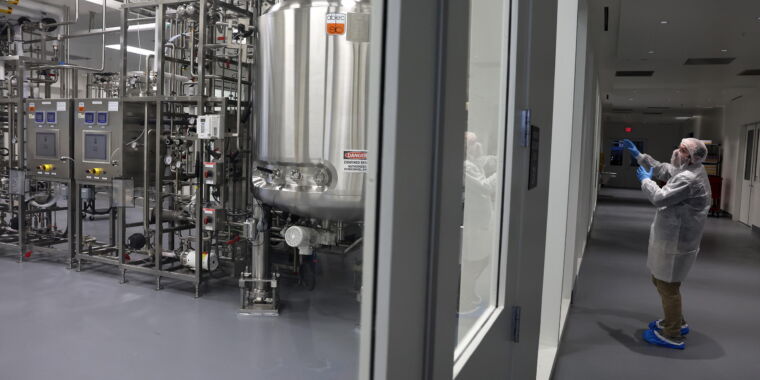State Legislators Seeking to Ban Cell-Cultured Meat
Alabamians and Arizonans face potential consequences of months in jail and substantial fines for the sale of cell-cultured meat products that could threaten the profits of ranchers, farmers, and meatpackers in the states. State legislators across Florida to Arizona are actively pursuing bans on meat grown from animal cells in labs in response to what they perceive as a threat to the ranching industry. This move aims to protect the agriculture sector from potential losses due to reduced consumption of animal protein, with a goal of mitigating the significant climate impact of the industry.
Climate Impact and Regulatory Scrutiny on Agriculture
Greenhouse gas emissions from agriculture contribute to approximately 11% of the nation’s total emissions, with livestock emissions accounting for a quarter of that percentage. The methane emissions from cattle pose a particular concern, given methane’s potency as a greenhouse gas. Efforts to reduce meat and dairy consumption have gained traction in the activist community due to their significant climate impacts. Last year, over 150 countries pledged to voluntarily cut emissions from food and agriculture, emphasizing the global need for action to combat climate change.
Climate activists and advocates of sustainable agriculture have long highlighted the importance of regulating emissions from the agricultural sector. The push to reduce meat consumption aligns with global initiatives to address climate change and reduce the environmental footprint of the food industry.
State Legislation Targeting Cell-Cultured Meat
Bills in multiple states such as Alabama, Arizona, Florida, and Tennessee have specifically targeted cell-cultured meat products, which are produced through lab processes using animal muscle cells. Sixteen states have already passed laws regulating the labeling of products such as cell-cultured meat, plant-based products, and insect-based foods. The lack of a standardized framework for labeling such products has led to varied legislative approaches across states, underscoring the need for federal oversight and regulation.
At the federal level, proposed legislation such as the Fair and Accurate Ingredient Representation on Labels Act of 2024 seeks to empower the USDA to regulate imitation meat products and ensure accurate labeling. Simultaneously, senators have introduced bills aimed at limiting the use of cell-cultured meat products, particularly in school settings.
Market Availability and Industry Response
While plant-based meat substitutes have gained widespread acceptance, cell-cultured meats remain limited in availability. Federal approvals for cell-cultivated poultry products have been granted to select companies, signaling a shift in the market landscape. Notable investors, including Bill Gates, have supported cell-cultivated meat products, attracting both investment and controversy.
State legislators’ concerns about the impact of lab-grown meat on traditional farming practices have sparked heated debates. Lawmakers’ efforts to prohibit cell-cultured meat sales reflect broader tensions between traditional agricultural sectors and emerging technologies in food production.
State-Specific Legislative Context: Alabama and Arizona
In Alabama, efforts to ban lab-grown meat are underway, raising questions about the efficacy of such legislation. State senators have passed a bill imposing penalties on the sale and distribution of cultivated food products, citing uncertainties about health risks and potential competition for local farmers. The bill’s progression through the legislative process underscores the complexity of balancing agricultural interests with emerging food technologies.
In Arizona, a similar push to ban cell-cultured meat products has garnered attention for its implications on the ranching industry. Lawmakers’ concerns about the introduction of alternative proteins have led to proposals aimed at safeguarding traditional farming practices. The debate over lab-grown meat’s role in the agricultural landscape reflects broader discussions about sustainability and innovation in the food industry.
Image/Photo credit: source url





